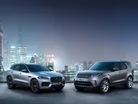JLR's Reimagine Strategy: Leading Automotive Sustainability

Jaguar Land Rover (JLR) is pushing the boundaries of sustainability in the automotive industry with its Reimagine strategy.
It's committed to tackling the challenging Scope 3 emissions, encompassing indirect emissions from the entire value chain, including suppliers, manufacturing and end-user vehicle emissions.
Through a comprehensive plan that emphasises electrification, supply chain transformation and innovation, JLR aims to lead the industry toward a greener future.
The Reimagine Strategy addresses the following Scope 3 categories:
Category 1: Purchased Goods and Services
One of the critical areas of focus for JLR is reducing emissions from its supply chain, which is a significant part of Scope 3 emissions. The company is proactively engaging its suppliers in this effort by:
- Encouraging Supplier Collaboration: JLR urges its Tier 1 suppliers to create clear decarbonisation roadmaps and adopt transparent emissions reporting practices. Suppliers are also encouraged to align with the Science Based Targets initiative, setting tangible goals for reducing their carbon footprints.
- Driving Innovation through Partnerships: By collaborating with startups and technology partners, JLR is spearheading the development of new solutions to lower emissions during material sourcing and manufacturing. This approach ensures that JLR's supply chain continually evolves with the latest innovations.
Category 2: Capital Goods
JLR's Reimagine strategy includes significant investments in its industrial footprint and vehicle development programs. The investment supports reducing emissions from capital goods, aligning with the company's broader sustainability objectives.
Category 4 & 9: Upstream and Downstream Transportation and Distribution
Optimising logistics operations is another essential part of JLR's sustainability journey.
The company aims to reduce upstream and downstream transportation emissions by up to 30% by 2030. The initiative addresses a crucial aspect of Scope 3 emissions, which accounts for about 3-5% of JLR's total emissions footprint.
"We need to know where, how and what we emit. Then, where do these hotspots occur and how can we look at attacking and improving them."
Category 5: Waste Generated in Operations
JLR is not just focused on emissions but also on minimising waste in its operations. Dedicated teams manage waste, water and emissions from direct operations, which have implications for specific Scope 3 categories related to waste management.
Category 11: Use of Sold Products
Electrification is at the heart of JLR's strategy to reduce emissions from using its vehicles. The company has set ambitious goals to transform its product lineup:
- All-Electric Future for Jaguar: By 2025, Jaguar will become a fully electric luxury brand.
- Expanding Electric Options for Land Rover: JLR plans to introduce pure electric models across the Range Rover, Defender and Discovery lines by 2030.
- Achieving 80% BEV Sales by 2030: JLR aims to have 80% of its total vehicle sales of battery electric vehicles (BEVs) by 2030, significantly cutting down on vehicle use-phase emissions.
Category 12: End-of-Life Treatment of Sold Products
JLR is addressing the end-of-life phase of its products by collaborating with companies like Ascend Elements. This partnership focuses on manufacturing battery materials from discarded lithium-ion batteries, closing the loop on resource use and further reducing emissions.
Leveraging Technology for Transparency
JLR's approach to reducing Scope 3 emissions includes the use of advanced technologies for greater transparency and efficiency:
- AI and Machine Learning: Collaborations with startups like Circulor leverage blockchain and machine learning to track material origins, enhancing the monitoring and reducing supply chain emissions.
- NVIDIA Partnership: JLR's alliance supports using AI to improve EV performance, optimise powertrain efficiency, and enable continuous vehicle updates.
Alison Nuttall, Sustainability Operations Senior Manager , JLR emphasised, "There is a lot of work happening in the Scope 3 phase. It is widely recognised that Scope 3 emissions are a very challenging element [of the net-zero transition]. We are trying to create a new responsible supply chain network."
The cultural shift towards sustainability
Beyond technical solutions, JLR fosters a sustainability culture across its operations. Employees are encouraged to integrate carbon reduction into their daily roles, making sustainability a core aspect of every decision.
"Emissions are generated at every point along the supply chain—from the mining of materials to the manufacturing process to end use. It's vitally important to consider sustainability in every new area of innovation."
Challenges and opportunities ahead
While JLR's electrification initiatives target a significant portion of Scope 3 emissions, the company acknowledges the challenges in managing the remaining 30%, particularly within the supply chain and logistics. This complex task presents opportunities for further innovation and collaboration across the industry.
Jaguar Land Rover's Reimagine strategy is not just about transforming its practices but about setting a new standard in the automotive industry. By focusing on electrification, engaging its supply chain, leveraging technology and nurturing a culture of sustainability.
Receive the next edition of Scope 3 Magazine by signing up for its newsletter.
As part of this portfolio, make sure you check out Procurement Magazine and also sign up to our global conference series - Procurement & Supply Chain LIVE.
Also check out our sister brand, Sustainability Magazine and sign up to its global conference series - Sustainability LIVE.
Scope 3 Magazine is a BizClik brand.
- JLR's US$81M Investment in Sustainable Paint OperationsEnergy & Waste Management
- JLR Tackles Scope 3 Emissions with Leather GroupSustainable Procurement
- Evia Aero and Britten-Norman Address Scope 3 EmissionsTransportation & Logistics
- Global Scope 3 Emissions: A Corporate Sustainability ShiftScope 1 2 and 3

